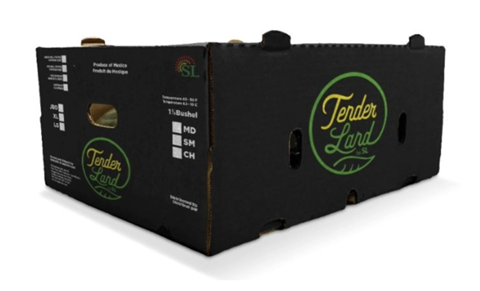Soil regeneration at heart of company’s sustainability strategy
Mexican vegetable grower-exporter SL Produce has announced plans to invest in a highly ambitious sustainability strategy in a bid to help alleviate challenging growing conditions.

With the company’s home state of Sinaloa facing an unprecedented drought – which has also affected growers in Sonora, Chihuahua, and other northern regions – the company said it is placing an even greater emphasis on sustainability, including new cultivation methods, and soil and varietal regeneration.
SL grows and markets green beans, bell peppers, American slicer cucumbers, courgettes, sweetcorn, yellow squash and grey squash under its Tenderland label.
The new sustainability plans include the expansion of a dedicated department for soil regeneration, which is leading the way when it comes to testing innovative new applications and technological solutions.
According to Ivonne Lugo, SL’s marketing and PR manager, much of northern Mexico is experiencing the worst drought in decades, which has resulted in lower production and crop losses across the region. He said the focus for 2025 at SL, therefore, has been on maintaining – as opposed to increasing – the same levels of production as 2024, while also testing new varieties that may be better suited to conditions on the ground.
The company has also put in place detailed strategic plans covering the remainder of the year, which cover everything from the start of production through to the signing of contracts with customers, particularly in key markets such as the US.
SL said its continued focus and dedication to sustainability, and crucially, soil regeneration sets it apart from its competitors. Soil regeneration is currently one of the business’ biggest drivers, with SL dedicating significant resources to improving soil conditions.
“The topic of sustainability might sound nice, and it can help you sell, but for us the backbone of our business is returning to the soil what we have taken out,” Lugo said. “We are completely immersed in establishing sustainable agriculture because we are located in a region with an increasing amount of challenges.
“We have a changing climate that we can’t control, a drought that has affected everyone here, plus other external factors, and all of this has led us to take sustainably very seriously.
“If we don’t work on soil regeneration, the business would be over. There wouldn’t be land to cultivate crops.”
SL’s focus on sustainability has also led it to test new varieties along with innovative treatments to improve soil health, including beneficial bacteria and sea-grown algae. “Our soil regeneration department started as a ‘nice to have’ and it has now become a ‘basic must’ where we have increasing numbers of specialists studying how we can keep improving soil health and what technologies can be used to do that,” Lugo said.
“We are closely following what’s happening in California, in Australia, in Japan, studying all the new solutions that are being developed. Not everything is suitable for our region, but we are keeping ourselves informed and are continuing to look for new alternatives. These investments are expensive but necessary because we have promises that we want keep with our clients, which for us is the most important thing.”
To provide year-round supplies of many key products, including bell peppers, cucumbers and green beans, SL also has production sites further south in the regions of Jalisco and Guanajuato. “Even when changing production to different regions isn’t always the most profitable thing to do, for us it’s the most effective way of ensuring we continue to bring our customers the best quality products, 12 months a year,” Lugo said.



